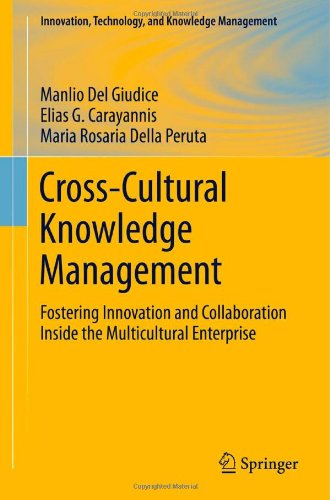

Most ebook files are in PDF format, so you can easily read them using various software such as Foxit Reader or directly on the Google Chrome browser.
Some ebook files are released by publishers in other formats such as .awz, .mobi, .epub, .fb2, etc. You may need to install specific software to read these formats on mobile/PC, such as Calibre.
Please read the tutorial at this link: https://ebookbell.com/faq
We offer FREE conversion to the popular formats you request; however, this may take some time. Therefore, right after payment, please email us, and we will try to provide the service as quickly as possible.
For some exceptional file formats or broken links (if any), please refrain from opening any disputes. Instead, email us first, and we will try to assist within a maximum of 6 hours.
EbookBell Team

5.0
58 reviewsCross-cultural knowledge management, an elusive yet consequential phenomenon, is becoming an increasingly essential factor in organizational practice and policy in the era of globalization. In order to overcome culturally shaped blind spots in conducting research in different settings, this volume highlights how the structuring of roles, interests, and power among different organizational elements, such as teams, departments, and management hierarchies (each comprised of members from different intellectual and professional backgrounds), generates various paradoxes and tensions that bring into play a set of dynamics that have an impact on learning processes.
In this context, such questions often arise: How is knowledge shared in the multicultural organization? What problems and issues emerge? How do different mentalities affect people’s responses to new knowledge and new ideas? How can knowledge-sharing processes be improved? Under which conditions do ideas generated by units or groups of different cultural traditions have a chance of being heard and implemented?
Such questions translate into an investigation of potential managerial dilemmas that occur when different but equally valid choices create tensions in decision making. The authors draw from experiences working with a wide variety of organizations, and insights from such fields as sociology and psychology, to shed new light on the dynamics of knowledge management in the multicultural enterprise. In so doing, they help to identify both obstacles to successful communication and opportunities to inspire creativity and foster collaboration. The authors note that in order to enable organizations to transfer knowledge effectively, mechanisms for dispute settlement, mediation of cultural conflict, and enforcing agreements need to be in place.